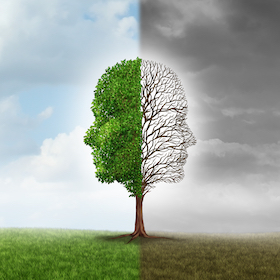Environmental Psychology Research Group
Who we are

The Environmental Psychology and Climate Change Research Group comprises academic staff and students who are interested in how psychological principles can be applied to understand and help solve problems related to environmental sustainability and helping individuals and communities adapt to climate change.
Projects examine the impacts of climate change and resultant natural hazards such as fire, flood, cyclones and drought on health and wellbeing. Research projects also focus on how to build resilient individuals and communities, including through interventions to support the well-being of those affected by natural hazards and climate anxiety.
Other projects seek to further understand the benefits of nature exposure and the use of eco-therapy and animal-assisted therapies. How to promote behaviour change and increase pro-environmental behaviours are also areas of interest.
Our Staff
- A/Prof Warren Bartik
- A/Prof Suzie Cosh
- A/Prof Natasha Loi
- Prof Amy Lykins
- A/Prof Clara Murray
- Dr Cassandra Sundaraja
- Prof Einar Thorsteinsson
Research in the Media
Cosh, (2022), Australia-first model for disaster recovery
Schreiber, (2021), Addressing climate change concerns in practice
Projects
Funded projects:
- Phoenix Project: A Community-Based Mental Health Fire Recovery Program (Black Summer Bushfire Recovery Grants)
- The human dimensions of environmental non-compliance (Bushfire and Natural Hazards CRC and Victorian Office of the Conservation Regulator)
- Bee Well Project (Peregrine Centre Rural Mental Health Small Project Grant)
Ongoing projects
- Mental Health Needs of Rural Australians Impacted by Climate Change
- Mental health and wellbeing of Young Australians impacted by climate change and climate events
- Cultural worldviews and natural hazard risk perception in Australia
- Citizen science engagement environmental tracking and reporting
- Assessing welfare post-fire wildlife assistance and provisioning
Future Students
Recent PhD thesis topics include
- Factors that influence the purchase choices around Palm Oil
- Integrating a Mental Health and Disaster Preparedness Intervention in response to Natural Disasters in Australia
- Public support for renewable energy: Do values matter?
- How to get Australians to adopt climate-friendly diets
- Exploring personality and mood factors associated with decision-making when faced with natural disasters
- Adjustment Disorder in Young Australians exposed to natural hazards
Available PhD opportunities
- Community mental Health interventions following floods and natural hazards
- From wood fires to sustainable sources of heating: Promoting behaviour change
- Defining recovery after a natural disaster – what does it mean for communities to be recovered?
Additional topics and opportunities exist, please contact individual staff for further information or to discuss.
Contact
If you are interested in joining UNE’s Environmental Psychology Research Group as a student or partner, please contact:
Professor Amy Lykins
P: +61 2 6773 5014
E: alykins@une.edu.au

